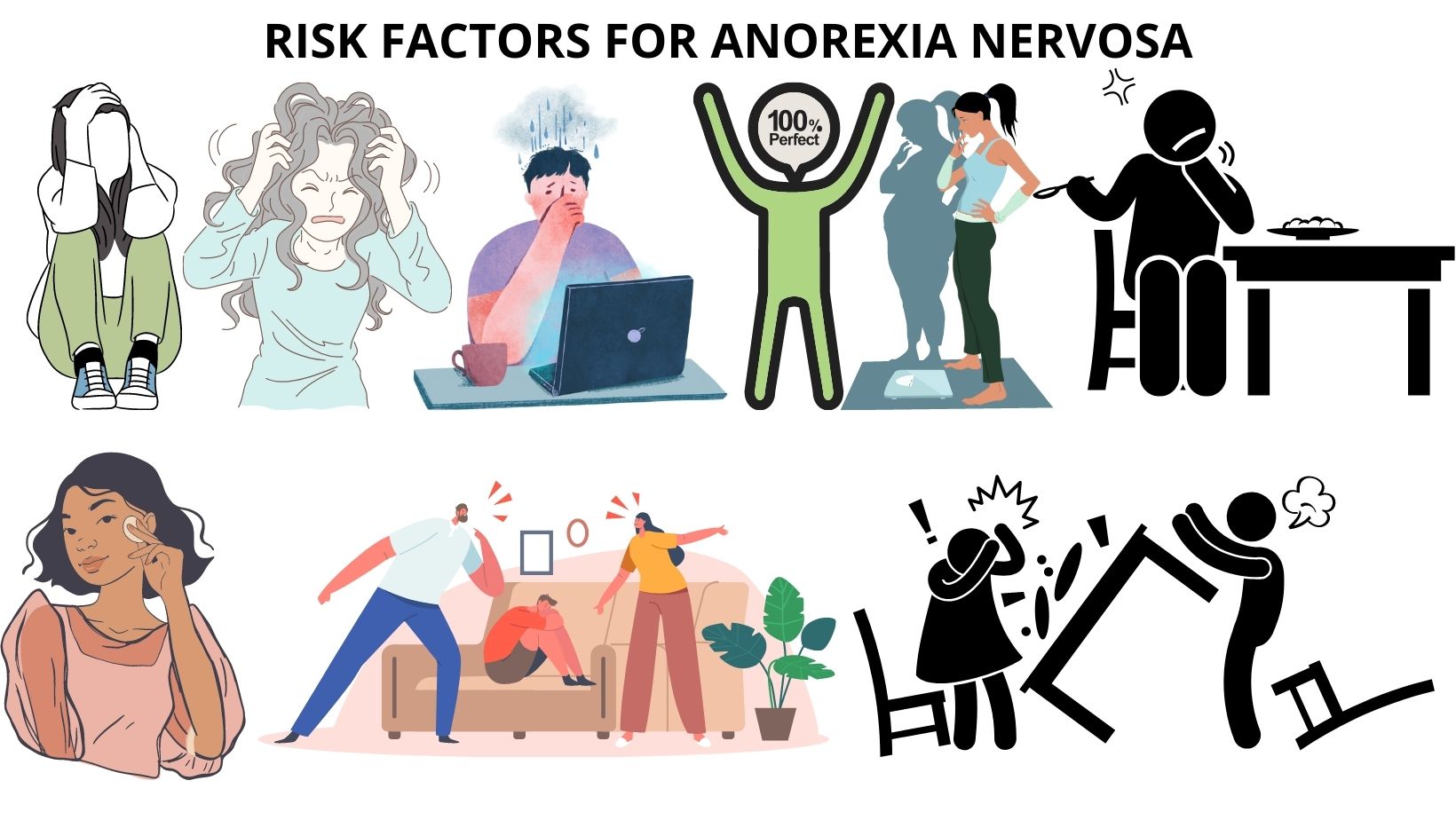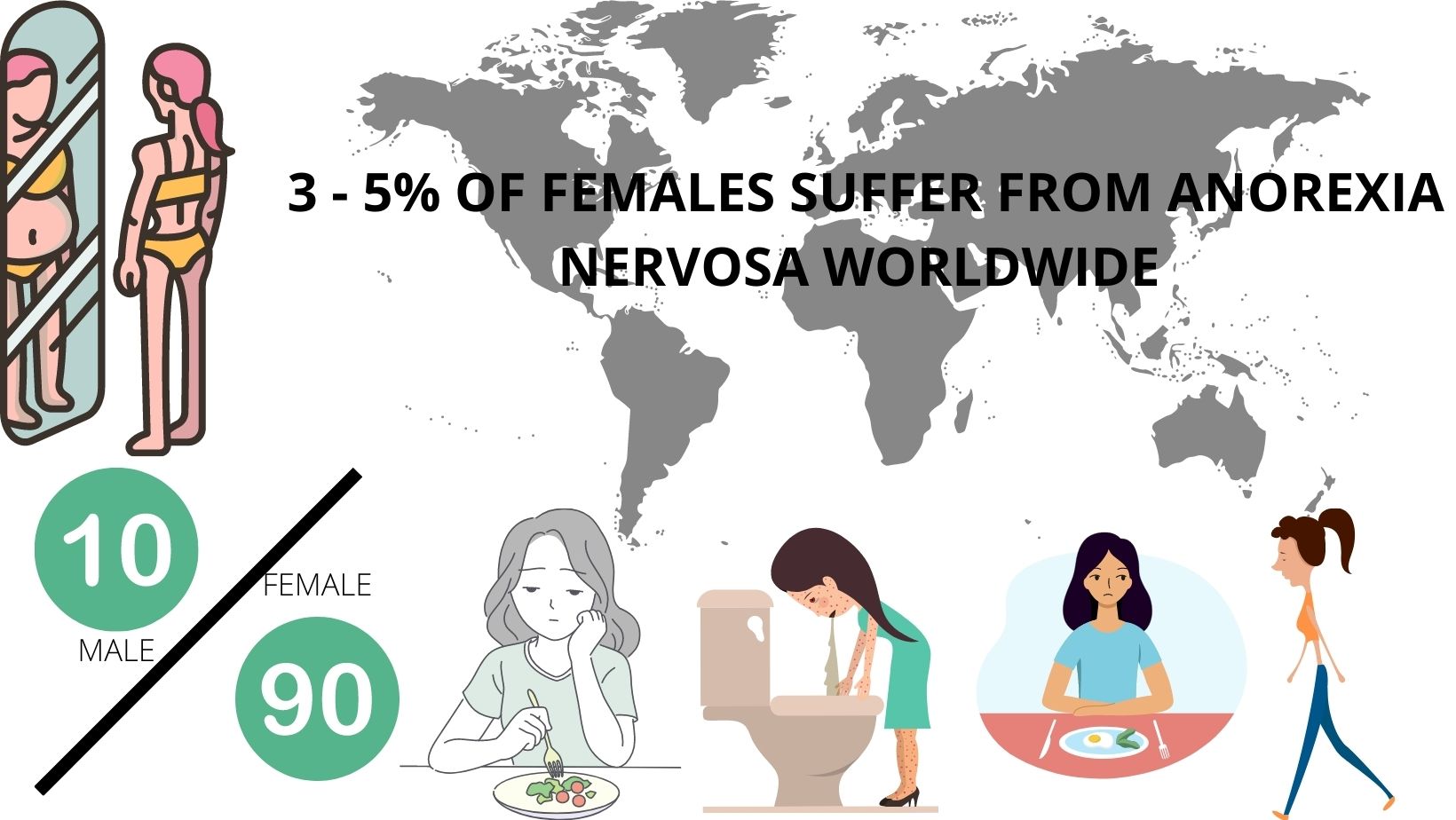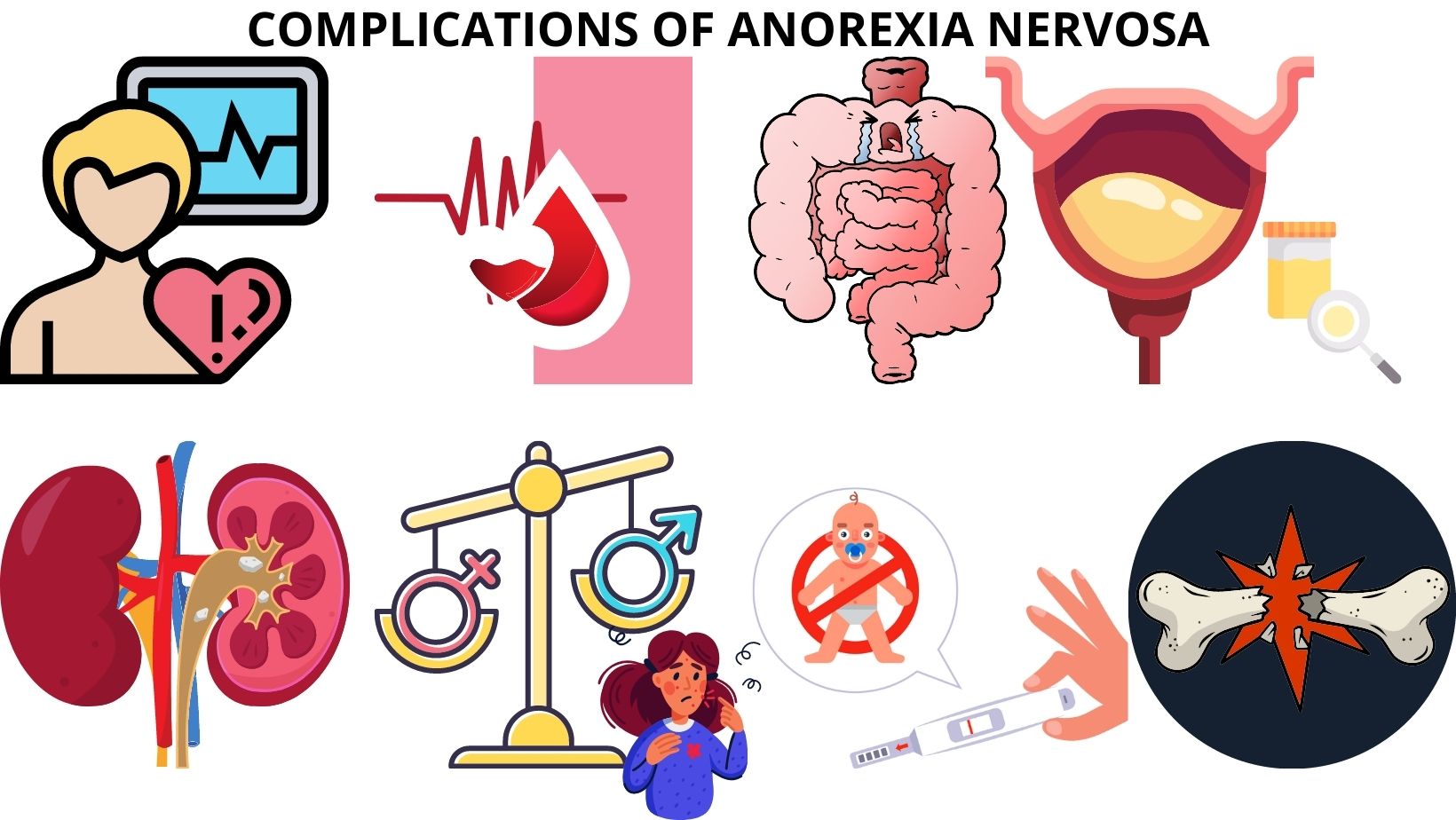THE DEFINITIVE GUIDE FOR THE TREATMENT OF ANOREXIA NERVOSA
WHAT IS ANOREXIA NERVOSA?
Anorexia nervosa is a life-threatening psychological, eating disorder that is characterized by self-starvation and excessive weight loss more than what is required to carry out daily activities.
It comes from emotional challenges, unrealistic body image, and fear of becoming overweight or obese.
It often begins during teenage or early adulthood.
A person with anorexia will intentionally restrict their food intake mainly due to a fear of being/becoming fat despite being emaciated.
WHAT ARE THE RISK FACTORS FOR ANOREXIA NERVOSA?
Anorexia affects females more often than males and is most common in young females.
Caucasians are more often affected than people of other ethnicities.
It is more common in middle and upper socioeconomic groups.
Other risk factors associated with it are:
- Having a history of depression and anxiety
- Having difficulty handling stress and being suspicious
- Being a perfectionist and much disciplined
- Having a negative self-image
- Having eating problems during early childhood or infancy
- Holding specific ideas regarding beauty and health that may be influenced by media or society.
- Physical, sexual, emotional, or other types of abuse/bully
- Disturbed family or other relationship
 WHAT ARE THE COMPLICATIONS OF ANOREXIA NERVOSA?
WHAT ARE THE COMPLICATIONS OF ANOREXIA NERVOSA?
Complications can be multisystemic and severe.
Physical complications include:
- Cardiovascular problems: These include ECG abnormalities, low BP, and damage to the heart muscle.
- Blood problems: developing low WBC and anemia.
- Gastrointestinal problems: Movement in the intestines gets slowed down leading to constipation and liver functions to get affected.
- Kidney problems: Dehydration can lead to highly concentrated urine and more urine production along with the formation of renal calculi.
- Hormonal problems: Lower levels of growth hormones may lead to delayed growth at an early age. Along with sex hormones, the thyroid also gets affected leading to infertility.
- Bone fractures: Patients have a high risk of developing osteopenia and osteoporosis.
WHAT ARE THE SYMPTOMS OF ANOREXIA NERVOSA?
The main sign is usually severe weight loss and refusing to eat.
Other symptoms include:
- Loss of muscle mass
- Fatigue, exhaustion, lightheadedness, or dizziness
- Low blood pressure
- Low body temperature- cold hands and feet
- Constipation
- Dry and pale skin
- Swollen hands and feet
- Hair loss and brittle nails
- Loss of menstruation and infertility
- Insomnia
- Osteoporosis
- irregular heart rhythms
- lanugo(downy hair growing all over the body)
- Occasionally more extreme measures such as bloodletting are encountered.
WHAT ARE THE CAUSES OF ANOREXIA NERVOSA?
No specific cause has been found till now but it is thought to be triggered by a combination of several biological, environmental and genetic factors where food and eating become associated with guilt.
DIAGNOSIS OF ANOREXIA NERVOSA
It gets difficult to diagnose it as individuals with anorexia often attempt to hide the disorder. But it can be diagnosed by physical examination, several basic blood tests, and enquiring about the patient from their family members and friends.
An early diagnosis and treatment increase the chance of a good outcome.
TREATMENT OF ANOREXIA NERVOSA
Treatment involves medication, psychotherapy, family therapy, and nutrition counseling.
Counseling includes CBT, which focuses on changing the way the person thinks about themself, food, or body image and as a result, develops effective ways of dealing with stressful difficult situations.
Nutritional supplements may be needed to combat malnutrition.
MANAGEMENT OF ANOREXIA NERVOSA
- Encourage getting help from medical professionals as early as possible for anyone you suspect of having this disorder.
- Be kind and respectful to others rather than judgmental.
HOMEOPATHIC MANAGEMENT OF ANOREXIA NERVOSA
There are a variety of homeopathic medicines available to treat anorexia nervosa along with counseling therapy such as lycopodium, iodum, china, alumina, picric acid, cina, etc.
DO’S AND DON'TS
DO’S
- Helping people understand the unrealistic nature of media representations of excessive thinness as beautiful is one way to help prevent anorexia.
- Seek medical help as soon as possible.
- Practice meditation daily.
- Appreciate yourself for who you are.
DON'TS
- Don’t be judgemental towards others.
- Don’t criticize someone’s appearance.


Comments
We have received your comment , Thank You !